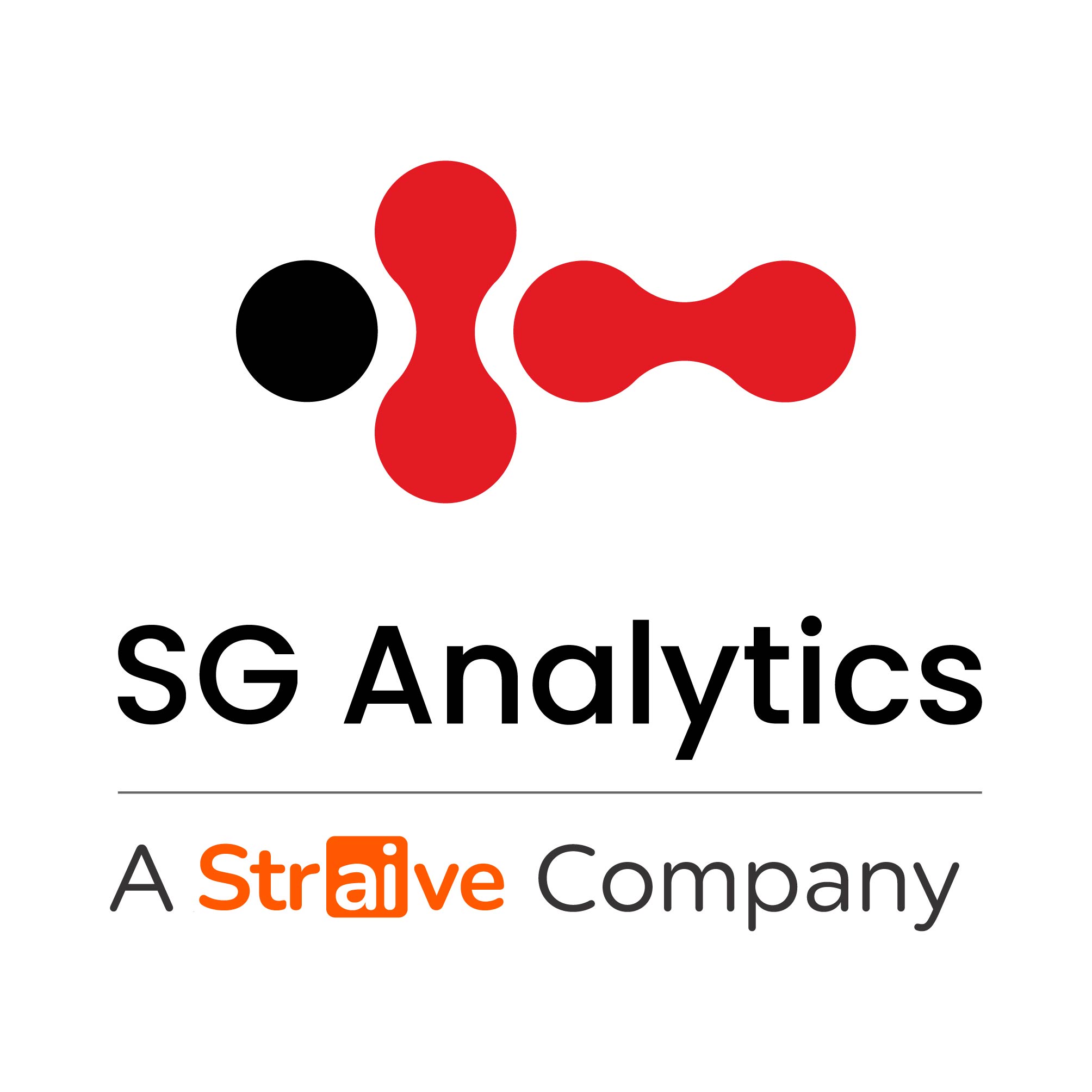- Resources
- Blog
- Data Analytics in Asset Management: Importance and Use Cases
Data Analytics in Asset Management: Importance and Use Cases
Asset Management
Contents
August, 2025
Utilizing data analytics in asset valuation and reallocation has become a critical tool for respective firms that aspire to increase their competitiveness. Today, due to the ever-growing volume of structured and unstructured data, asset managers must upgrade their skills and toolkits. Otherwise, they might struggle to navigate an environment where data-driven insights take the center stage at every strategy discussion. This post decodes the role of data analytics in asset management.
First, effective use of analytics enables professionals to identify trends, forecast outcomes, and build robust portfolios based on quantitative evidence. Therefore, asset managers like BlackRock and Fidelity are embracing analytics platforms. They want to fine-tune their investment strategies using reliable insights.
Similarly, the adoption of tools like Bloomberg Terminal, Tableau, and Aladdin has made it easier to monitor market behavior and understand the puzzling shifts in client preferences. On the other hand, asset managers must proactively leverage data analytics solutions because of their benefits. Those tools already empower many asset management companies (AMCs) to deliver consistent results and allocate client capital with precision.
Furthermore, firms that invest in novel analytical capabilities can rapidly adapt to macroeconomic disruptions that could undermine some assets’ growth prospects. By using real-time insights, asset managers also enhance performance and maintain long-term client trust. In short, data analytics in asset management, when used successfully, helps prevent intelligence gaps and embrace a strategic perspective to govern allocation decisions.
Read more: The Role of Data Analytics in Investment Banking
Role of Data Analytics in the Asset Management Industry
The asset management industry is continuously under pressure, requiring technological changes that ensure client expectations are met and regulatory demands are respected. In this setting, data analytics that aids asset managers in their workflows attracts the stakeholders. It supports decisions in areas like asset allocation, product development, and risk mitigation.
However, without a disciplined approach to analytics, firms risk operating with outdated assumptions and incomplete information.
Today, portfolio managers at firms such as T. Rowe Price and Invesco rely on advanced analytics platforms to align investment strategies with client goals. Whether dealing with equities, fixed income, or alternative investments, these professionals depend on tools like SAS, Power BI, and FactSet to support their recommendations.
According to similar firms, analytics enables them to identify underperforming sectors. In addition to tracking competitive movements, data analytics services alert asset managers about exposure to systemic risks.
Analytics professionals also have better, more diverse career opportunities at asset management companies where they craft a comprehensive view of all client portfolios and related market dynamics. Their work leads to enhanced transparency and allows for better regulatory compliance. That latter is more critical than ever. Therefore, for firms offering portfolio management services, the analysts’ ability to track and predict market shifts helps maintain credibility with stakeholders and regulators alike.
How Data Analytics is Reshaping Asset Management Firms
Firms have invested in IT infrastructure to embed analytics into their operations. At the same time, financial analytics and reporting, due to their increased importance, are altering team compositions. Likewise, investment models and client engagement methods cannot remain the same. Given these trends, most asset management veterans are reviewing traditional roles. They want to redefine what it means to accommodate specialists in data science, artificial intelligence, and context-aware automation.
For example, global players in the asset management space, like Schroders and State Street, are reorganizing around centralized data analytics teams. These firms now prioritize data management strategies that ensure accurate decision-making across departments. From front-office portfolio construction to back-office operations, analytics is built into daily workflows. Data analytics for asset managers also enables real-time portfolio optimization, upgrading the precision of research functions.
Predictive Analytics is playing an important role that deserves more recognition. For example, Amundi Asset Management applies machine learning models to forecast fund performance. Doing so allows them to optimize risk-return outcomes. As predictive models become more sophisticated and easier to use, more asset management professionals will get on-time support.
In the long run, smarter rebalancing strategies and hedging tactics that are grounded in reliable scenario analyses will become the standard.
Read more: The Power of Data Analytics in Sustainability Initiatives
How Asset Managers Are Leveraging Data Analytics?
Asset managers are deploying data analytics in diverse ways, from fundamental research to ESG scoring. Besides, client segmentation is likely to be less arduous as targeting performs better with data-backed profile matching per product or scheme. Asset management companies using advanced or predictive analytics tools are able to assess large datasets without human bias. They can also process alternative data sources such as satellite images, social media sentiment, and credit card transactions.
Data analytics’ use cases for asset management often involve improving alpha generation. Consider how firms like Nuveen and Janus Henderson use analytics to identify market inefficiencies. They essentially spot early indicators of sector rotations. Identical insights allow asset managers to develop sharper, more resilient investment strategies.
Client relationship teams also benefit from analytics integrations. By leveraging relevant AI-led CRM analytics platforms optimized for asset managers and their clients, AMCs can identify those at risk of attrition. Later, creating and exercising personalized engagement plans would help. In this context, analytics not only supports investment outcomes but also enhances client satisfaction metrics.
Read more: The New Data Economy – Navigating the Future of Data-Driven Value Creation
Importance of Data Analytics for Asset Management Firms
The significant role of data analytics in asset management has much to do with its capacity to improve decision-making accuracy and overall operational agility. In a sector where competition is high and margins are shrinking, analytics offers firms the means to deliver superior outcomes while bringing the costs under control. Furthermore, the use of real-time and historical data enables asset managers to track performance drivers. They can also adjust investment models when necessary.
Data analytics solutions that help asset managers use better benchmarking also contribute to higher yields, helping decrease opportunity costs. For illustration, with tools such as Morningstar Direct and Eikon, managers can compare portfolio performance against customized indices. This transparency boosts investor confidence and supports fiduciary accountability.
Moreover, asset management outsourcing services powered by analytics can offer better reporting. Remember, regulatory mandates such as MiFID II and Dodd-Frank require detailed, auditable records. Thankfully, AMCs using analytics tools can generate compliance-ready reports and avoid penalties. Data analytics solutions integrated into asset management services and solutions thus become critical not only for strategy but also for governance.
Data Analytics Trends for Asset Management
1. AI for Anomaly Identification
Several noteworthy trends that reshape the future of data analytics in asset management and financial advisory firms indicate a rising adoption of artificial intelligence. It is primarily for anomaly detection and model refinement. For instance, firms like Man Group and Wellington Management use AI to gain deeper insights into asset behavior based on multiple economic cycles. Such use cases allow for faster asset reallocation. In turn, the AI-powered analytical models improve resilience during market shocks.
2. Cloud for Secure and Swift Collaborations
Another trend is the application of cloud-based platforms to support scalability. With cloud integration, data analysts who work closely with asset managers can enjoy faster data availability and ease of collaboration, especially during the report creation or data view modification.
More accessibility across business units also requires better handling of user account privileges via superuser or administrator controls. Cloud systems can not only deliver those accountability and controlled access features, but also let asset managers select a dedicated admin to further reduce IT-related legal liabilities and workloads.
Today, solutions like Snowflake and Azure Synapse Analytics help asset management firms centralize data and extract meaningful insights without physical infrastructure limitations.
3. Personalization and Sentiment-Related MR
Meanwhile, personalization continues to become a strategic pillar in an asset management company’s portfolio creation and market research.
In the former use case, it involves building tailored portfolios for institutional and retail clients. Custom indexing and goal-based planning are also viable due to robust analytics capabilities. For instance, Vanguard has launched services that adapt portfolio strategies to individual investor risk profiles and financial objectives.
However, the latter case involves market researchers who offer asset managers vital insights and are also witnessing a much-needed transition. After all, traditional surveys are now supplemented by real-time data streams, followed by efficient sentiment analytics. Consider how firms use platforms such as AlphaSense or Refinitiv to estimate macro trends and competitor behavior. At every asset management company, these tools enhance market research processes and feed more accurate insights into portfolio construction.
Read more: Data Dominion: Taking Charge of Your Business Intelligence
4. Analytics for Ethical or Sustainable Portfolios
Sustainability and ESG integration are another growing focus. Therefore, asset managers are aligning investments with environmental, social, and governance standards. By using data analytics in asset management, firms can source and analyze ESG scores, emissions data, and governance risks. For instance, tools such as MSCI ESG Manager or Truvalue Labs are helping asset management companies adjust their portfolios in line with global sustainability metrics.
Conclusion – Data Analytics for Asset Management
Data analytics in asset management is affecting how AMCs deliver value, manage risk, and engage clients. It provides a foundation for better decision-making, cost reduction, and regulatory compliance. As a result, asset managers who invest in analytics infrastructure are more agile, precise, and client-centric.
From sentiment-linked market research to portfolio performance attribution, data analytics services empower asset managers, letting them create differentiated investment strategies. With tools ranging from Tableau and Aladdin to Predictive Analytics platforms and cloud solutions, the industry is moving toward greater efficiency and insight.
Contemporary asset management services and solutions that embed analytics are more likely to offer richer reporting, improved forecasting, and more personalized client experiences. However, as regulatory demands tighten and client expectations rise worldwide, leveraging data analytics will also attract novel data security and financial ethics risks. Those who fail to change their approaches will fall behind. That is why collaborating with analytics experts and data partners is the need of the hour.
About SG Analytics
SG Analytics (SGA) is a leading global data and AI consulting firm delivering solutions across AI, Data, Technology, and Research. With deep expertise in BFSI, Capital Markets, TMT (Technology, Media & Telecom), and other emerging industries, SGA empowers clients with Ins(AI)ghts for Business Success through data-driven transformation.
A Great Place to Work® certified company, SGA has a team of over 1,600 professionals across the U.S.A, U.K, Switzerland, Poland, and India. Recognized by Gartner, Everest Group, ISG, and featured in the Deloitte Technology Fast 50 India 2024 and Financial Times & Statista APAC 2025 High Growth Companies, SGA delivers lasting impact at the intersection of data and innovation.
Related Tags
Asset Management Data AnalyticsAuthor

SGA Knowledge Team
Contents